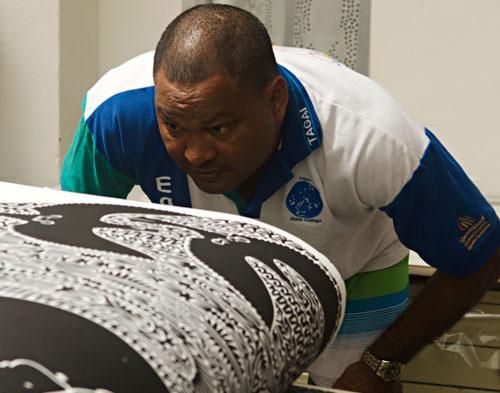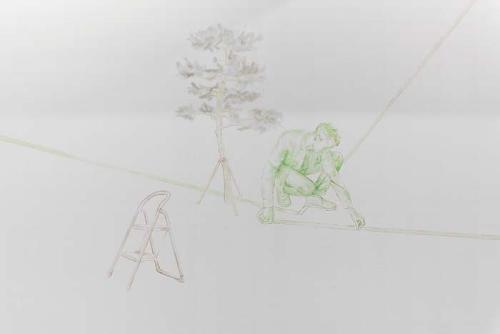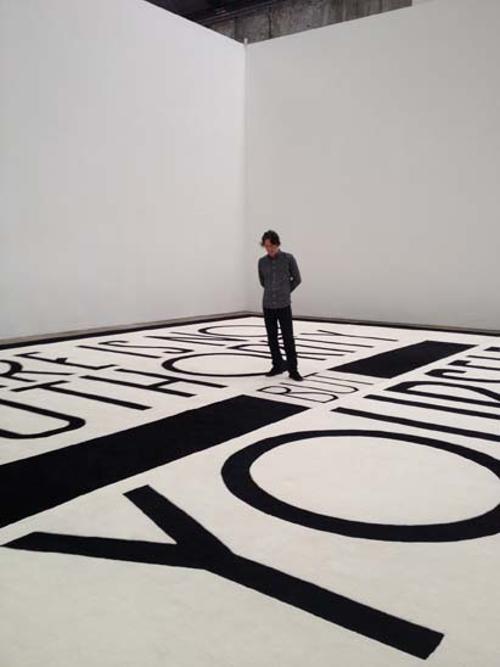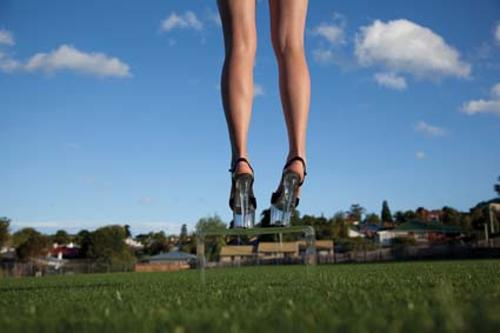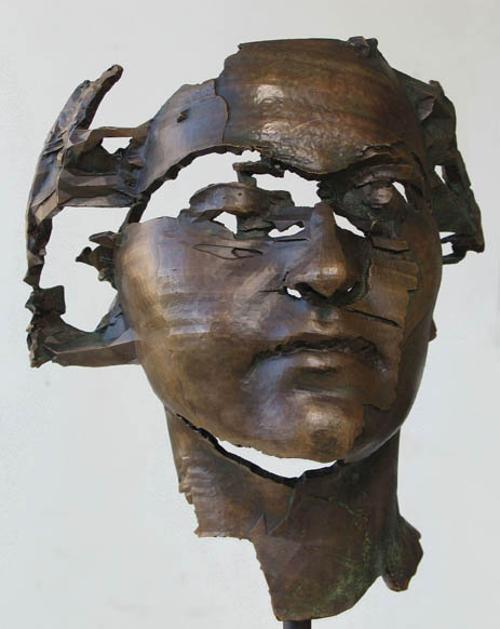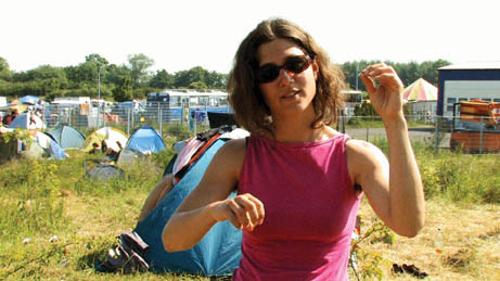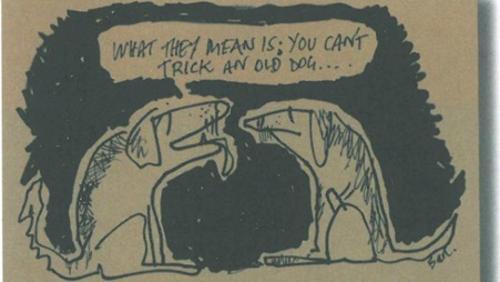Search
You searched for articles tagged with Identity ...

5th Auckland Triennial: “If you were to live here …”
The Auckland Art Gallery
10 May – 11 August 2013
10 May – 11 August 2013

Roy Ananda: The Devourer; Sandra Uray-Kennett: A Knights Tour through a Rent in the Wall
Contemporary Art Centre of South Australia Gallery and Project Space, Adelaide
26 April – 26 May 2013
26 April – 26 May 2013

19th International Symposium of Electronic Arts: Resistance is Futile
19th International Symposium of Electronic Arts
7 – 16 June 2013
7 – 16 June 2013

My Country, I Still Call Australia Home: Contemporary Art from Black Australia
Gallery of Modern Art, Brisbane
1 June – 7 October 2013
1 June – 7 October 2013
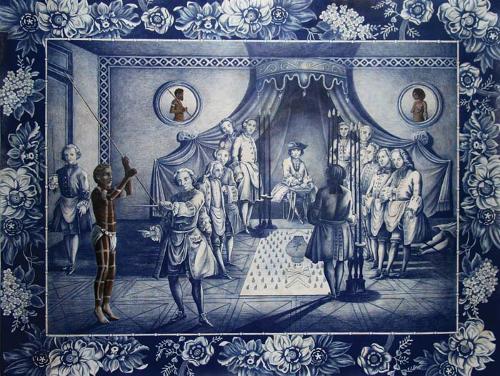
Editorial: ®ECLAIMED closing the gap of radical apathy
Daniel Browning takes a long hard look at the gap of apathy in Australia.

Editorial: Making history
Stephanie Radok takes the temperature of Aboriginal art and history in 2012.

The elephant in the room: public art in Brisbane
Artist-activist Fiona Foley recounts a recent incident of the commissioning of a public art work for Kurilpa (place of the kuril or native water rat). Kurilpa is the cultural precinct where GOMA is located. Foley imagines works by prominent Queensland Aboriginal artists dotted along that place.

The Ghost Net art project
Program Director for Ghost Nets Australia Sue Ryan describes how the Ghost Net Art Project began and what it is all about - people using eco-trash to share stories and express their creativity.
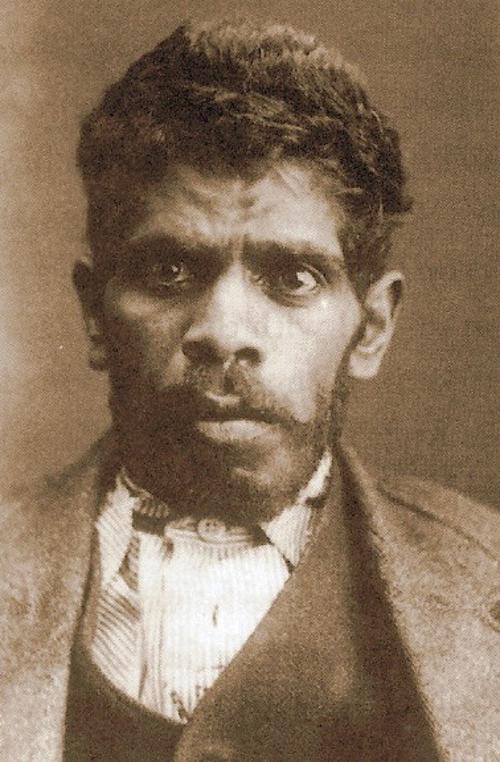
The Ballad of Jimmy Governor
Emeritus Indigenous curator Djon Mundine wrote this essay on the occasion of a production of Posts in the Paddock a play about Jimmy Governor by the company My Darling Patricia. The performance included members of the both families involved. Mundine addresses questions of familial and national forgiveness.
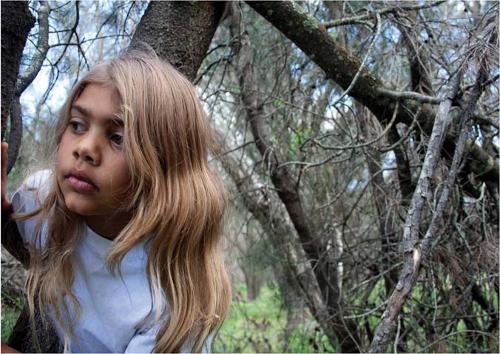
What lies buried on my land rises
Nyoongar artist Dianne Jones returned to York in Western Australia where her people come from and researched its tragic Aboriginal history.

Culture Warriors as cultural diplomacy
Senior lecturer at the College of Fine Arts (CoFA), University of New South Wales, Gail McDonald analyses the exhibition Culture Warriors, the first National Indigenous Art Triennial curated by Brenda L. Croft, that travelled to Washington in 2009. McDonald argues that, rather than diplomatic blandness, real political confrontation was present in the exhibition.

A place of our own
This conversation between curator Hetti Perkins and co-editor Daniel Browning looks at Perkins call for a National Institution, or Centre, of Indigenous Art, which might become, as she puts it, “a living space that breathes culture”.

Artefacts of authenticity
Artist and lecturer Garry Jones is undertaking a Phd at the Australian National University School of Art in Canberra. In this article he reveals some of his investigations of Aboriginal artefacts in museum collections and questions notions of authenticity, reclamation and reinvigoration of the past in contemporary Aboriginal art.

For architecture and country
Torres Strait Islander Kevin O'Brien, who is commissioning and directing an independent exhibition called 'Finding Country' at the Venice Architecture Biennale 2012 running from August to 25 November 2012, writes about an Aboriginal architecture that is not about buildings shaped like native animals.

Tandanya: the case for home
The National Aboriginal Cultural Institute, known as Tandanya, was established in 1989 in Adelaide. Philip Watkins, Artistic and Cultural Director of Tandanya, 2006-2011, said: “This is Tandanya’s role – to show our world through our eyes, to tell our stories and to sing our songs with our voices.” Curator, educator and writer Sara White reviews Tandanya's 23 years of art and asks "Does Australia need more Tandanyas?"

Archie Moore: drilling deep
Freelance curator and writer Tim Morrell studies the art practice of Brisbane-based Archie Moore which is emphatically free from any signature style and is concerned with sharing his experience as an Indigenous Australian in order to put viewers 'in his shoes'.
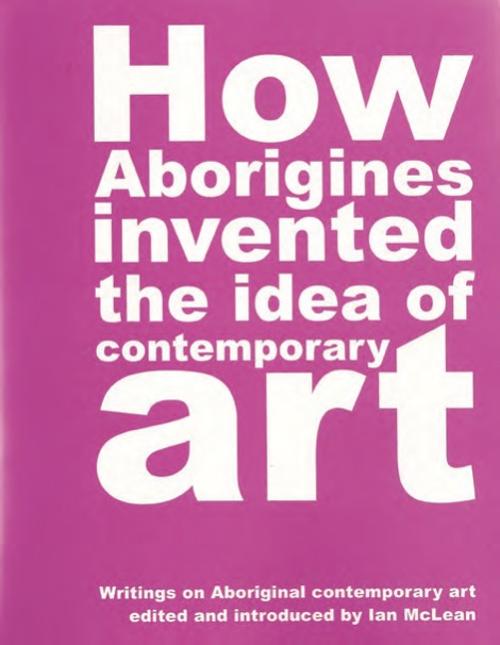
How did Aborigines invent the idea of contemporary art?
Brenda L Croft, artist, curator and Senior Research Fellow at the National Institute for Experimental Arts, UNSW, reviews and finds gaps in the big pink book put together over many years by Ian McLean that collects iconic bits of writing about Aboriginal art and knits them together.

Indigenous Art Code: cracking the code
The Director of the Indigenous Art Code John Oster explains the Code, how it works, why it is needed and who isn't complying.

Chiharu Shiota: State of Being Sue Saxon and Jane Becker: All that is solid melts into air
TarraWarra Museum of Art 25 February - 27 May 2012

FotoFreo 2012: The City of Fremantle Festival of Photography
Perth, Western Australia 17 March – 15 April 2012

Glen Skien: MYTHO-POETIC
The Webb Gallery Queensland College of Art Griffith University 19 – 28 April 2012
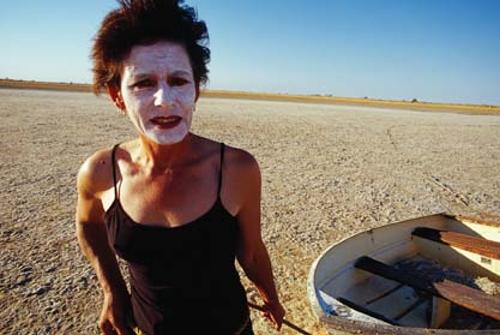
Obscured by Light: Pamela Lofts and Kim Mahood
Araluen Arts Centre, Alice Springs 25 February – 25 March 2012
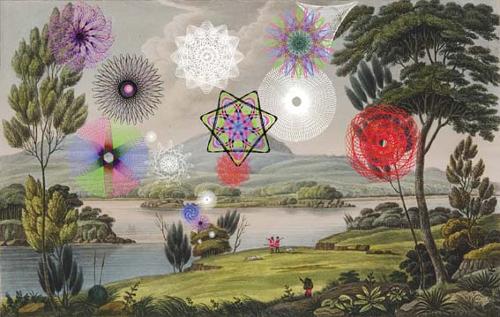
Panorama: are we there yet?
Daniel Boyd, Nadine Christensen, Sarah Goffman, Fiona Lowry, Bennett Miller, Arlo Mountford, Joan Ross, Caroline Rothwell, Bernie Slater, Jemima Wyman Casula Powerhouse Arts Centre, NSW 27 January 2011 – 13 March 2012

Parallel Collisions: 2012 Adelaide Biennial of Australian Art
2 March to 29 April 2012 Art Gallery of South Australia Curators: Natasha Bullock, Alexie Glass-Kantor

Restless – Adelaide International 2012
Curator: Victoria Lynn Flinders University City Gallery Samstag Museum of Art Contemporary Art Centre of South Australia Australian Experimental Art Foundation March 2012
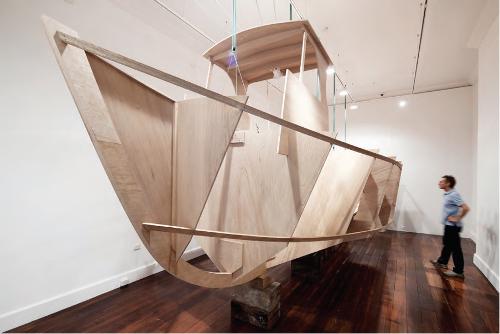
Spaced: Art out of place
Artistic Director: Marco Marcon Fremantle Arts Centre 4 February - 11 March 2012

Big wave: Desert Country
Legendary curator John Kean looks at three recent large exhibitions of Aboriginal art - Tjukurrtjanu: Origins of Western Desert Art, Desert Country and Living Water, and questions whether the same spirit sings in all of them.

Sitting & connecting: Goulburn Art Class 2-0-1-1
Goulburn Class 2-0-1-1 was an exhibition curated by Djon Mundine at the Goulburn Regional Art Gallery of work made by prisoners at the local Correction Centre in response to ten one day workshops in the prison by seven Aboriginal artists whose work was also in the show. Writer and editor Maurice O'Riordan reviews the exhibition and more importantly the processes it involved.
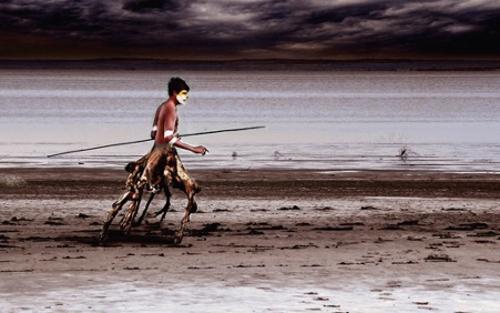
Reviewing Our Mob: A state-wide celebration of South Australian Indigenous art
Our Mob is a state-wide celebration of South Australian Indigenous art held annually at the Adelaide Festival Centre since 2006. Curator Susan Jenkins who worked on it for three years from 2009-2011 analyses what works about Our Mob and what the future might be.

Long Way Home: A celebration of 21 years of Yunggorendi First Nations Centre
Yunggorendi First Nations Centre for Higher Education and Research at Flinders University, celebrated 21 years of operation in 2011 with an exhibition of work selected by staff and students from the collection of Flinders University Art Museum. Artist Ali Gumillya Baker critically reviews selected works in the exhibition and the issues they raise.

No Place without Other Places: Spinifex Arts Project at fifteen years
University of Western Australia lecturer Darren Jorgensen examine the Spinifex Arts Project from its inception with reference to a new exhibition happening August-October 2012 at John Curtin Gallery and asks the big question: "What would it mean if Aboriginal artists were not tied to language groups, communities, art centres and regional styles?"

Postcards from China
Multi-disciplinary artists Jason Wing, who has both Aboriginal and Chinese forebears, undertook a residency in Xucun, a remote village in China, where Chinese artists Qu Yuan and Shen Shaomin have established the Xucun Art Commune in order to protect the village's beauty and heritage.

Tu Di Shen Ti, Our Land Our Body: the Ngaanyatjarra poetic goes to China
The exhibition 'Tu Di Shen Ti – Our Land Our Body, Masterworks of the Warburton Collection', was seen in China by about a quarter of a million people, across seven venues, throughout 2011. Director of the Warburton Arts Project Gary Proctor describes how the exhibition came about, what it looked like and what its goal are.
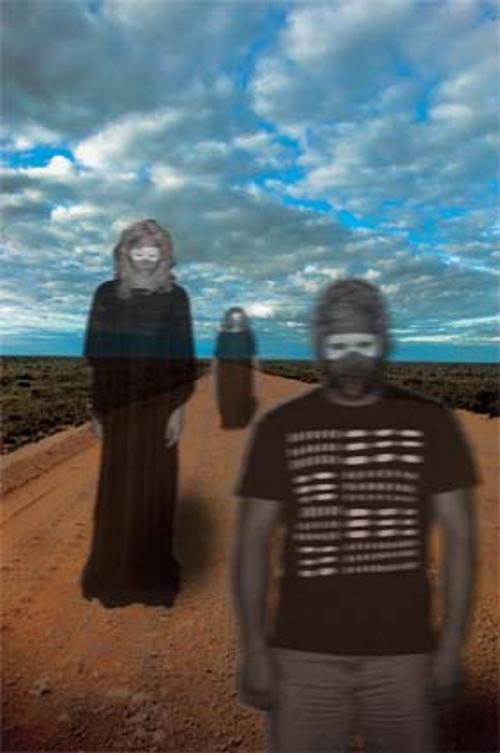
Ancestral memory: out of the shadows
University of Melbourne Research Fellow Fran Edmonds along with Victorian artists Lee Darroch, Maree Clarke and Vicki Couzens looks at the story of Aboriginal art in Victoria as a determined reclamation of the past, a cross-generational celebration in the present and a visionary guide for the future.

On the ground with Our Mob in 2011
Terry Cleary was the Statewide Indigenous Community Artists Development (SICAD) Program Manger with Ananguku Arts and Culture from 2009-2011. He reflects on the potential power of Our Mob when it works.

Catherine David's Transmission
Renowned French curator Catherine David visited Auckland to judge the Walters Prize; she awarded the $50,000 prize to Peter Robinson. John Hurrell artist, curator and blogger of NZ art reviews and critical discussion site eyeCONTACT spoke to Catherine about her curating of the Lyon Biennial which touches down in late 2009, and the relationship between artists and curators.

Curators, creators and catalysts
Marcus Westbury, former director of Noise, Next Wave, TINA (This Is Not Art) festivals, and writer and presenter of Not Quite Art on ABC TV, writes about the need for art to get away from reflecting too hard on gatekeepers and their requirements. He looks at the Biennale of Sydney at Cockatoo Island, the Next Wave's The Containers Village and the Melbourne Laneways projects as good examples of stepping outside the cube. He concludes that: 'Artists are best to invest their energy in finding their audiences and their communities.'

Right now I am unravelling: notes on the 2008 Next Wave Festival
A lively coverage of the exciting 2008 Next Wave Festival directed by Jeff Khan. Next Wave began 24 years ago and in 2008 presented the work of around 400 artist over 61 projects.

Curating a psycho-geography Campbelltown Arts Centre and the genius of Lisa Havilah
Campbelltown Arts Centre's chief curator and director Lisa Havilah creates challenging and confronting exhibitions like For Matthew and Others (2006), News from Islands (2007) and Ai Weiwei: Under Construction (2008). She believes that: 'contemporary art centres that sit outside of the metropolitan centres provide the highest level of opportunity for the development and application of new forms of curatorial practice.'

Beyond the temples: the way of idiosyncracy
Professor and artist Pat Hoffie interviewed highly creative, innovative and idiosyncratic curator Kevin Wilson, once Director of Linden, Director at Noosa Gallery where he devised The Floating Land project and most recently Program Director with the Queensland Artworkers Alliance and their ARC Biennial that opens in October 2009.

To curate or not to curate, 2008 in Europe: urban BB5 and post-industrial Manifesta 7
London-based Macedonian artist and writer Nadja Prlja compares the urban and modern 5th Berlin Biennial BB5: When Things Cast No Shadow (5 April - 15 June 2008) with Manifesta 7 (19 July - 2 November 2008) which occupied the whole arae of Trentoni in Italy. Prlja pays particular attention to the differences in the ways the projects were curated.
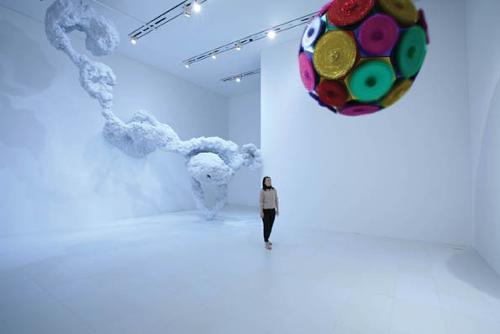
Curatorial Asia a twenty year perspective
As Director of Asialink Arts Alison Carroll has had twenty years of experience curating and facilitating the curation of exhibitions in or connected to Asia. Her analysis emphasises the complexity and cultural differences experienced by Asian curators in their home countries and looks forward to a more glocal future as they increase their international presence.
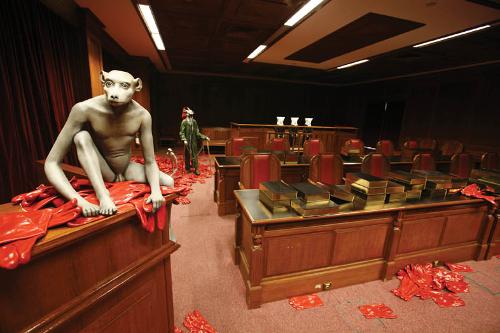
Places and contexts in two Singapore Biennales: curating courtrooms, containers and camps
Curator of the 2008 Adelaide Biennale Felicity Fenner discriminates between site-specific and site-responsive art practices in an analysis of the last two Singapore Biennales. She suggests that responding to the site may be the best way for a biennale to become more than an expo.

Curating Chinese themes: cheap labour, migration and capital, Shanghai Biennale and Guangzhou Triennial
In September 2008 Dylan Rainforth went to both the 7th Shanghai Biennale (Translocalmotion) and the 3rd Guangzhou Triennial (Farewell to Post-Colonialism). While he found mixed messages in Shanghai which was curated by artistic director Zhang Qing assisted by Julian Heynen and Henk Slager, it was Guangzhou curated by Gao Shiming, Sarat Maharaj and Johnson Chang that hit the sweet spot with 'witty, people-powered ways forward.'
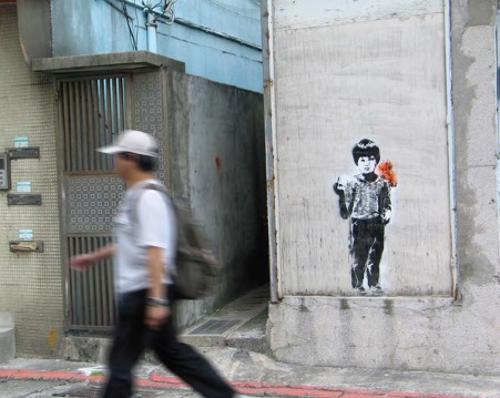
Manray Hsu taking a political position
Prominent Australian curator Victoria Lynn interviewed Berlin and Taipei-based independent curator Manray Hsu about his notions of decentralised cosmopolitanism and Archipuncture (a sort of acupunture that artists do to cities)..

Hello Tokyo! Good to see you again
Artspace curator Reuben Keehan reflects on the Australia-Japan Visual Art Forum convened by Asialink in June 2008 as the Biennale of Sydney opened. The thirty delegates concluded the stimulating forum with recommendations about ongoing collaborations between curators using a variety of models, as well as the new ideas to be pursued of audience-in-residence programs and an Asian version of Manifesta.

Hello Tokyo! Process is all
Diorama of the City: Between Site & Space 13 September - 13 October 2008 Tokyo Wonder Site Artists: Alex Gawronski, Gail Priest, Tim Silver, Hiraku Suzuki, exonemo, Paramodel

Hello Tokyo! Flagging it
Some Material Flags, MOT Tokyo, 22 October - 12 January 2009. Louisa Bufardeci

Throwing voices
Senior Curator at Christchurch Art Gallery Justin Paton reflects on curating the exhibition that he remembers most fondly and that speaks to him of the magic of curating - the show of wall paintings called Big Talk by US word- artist Kay Rosen in 2004 at the Dunedin Public Art Gallery.

Back from the brink: culture in Timor-Leste
The Museum and Art Gallery of the Northern Territory (MAGNT)'s Curator of Southeast Asian Art and Material Culture Joanna Barrkman curated Husi Bei Ala Timor Sira Nia Liman /From the Hands of Our Ancestors which is on at MAGNT in Darwin from 21 November 2008 to 12 July 2009. The show celebrates the survival of Timor-Leste's cultural inheritance and asks whether traditional art forms and techniques have a role to play in the formation and assertion of Timor-Leste's national and cultural identity.

Firing across the gaps
In May 2008 Wagga Wagga Art Gallery's new Director Cath Bowdler curated Crossfire, an exhibition of resonating artworks from the Gallery's two major collections, the National Art Glass Collection and the Margaret Carnegie Print Collection, as a way of introducing herself to both the space and the place. Bowdler was initially inspired by the glass work Salt on Mina Mina by Dorothy Napangardi.

Species enhancement by international gene pool
Director of Wollongong City Gallery Craig Judd writes about the memorable experience of curating Wild Thang: post pop from the MCA, a show that combined works from the MCA's collection with corresponding pieces in the collections of the towns the exhibition visited: Bathurst, Armidale, Gold Coast and Albury.
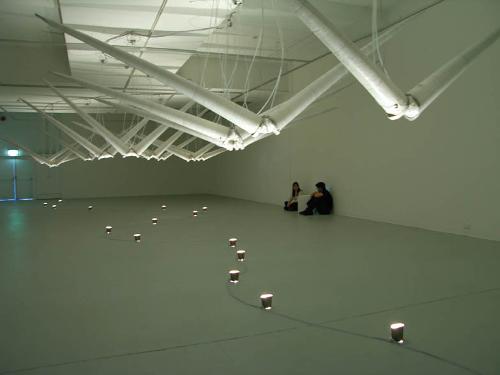
Curating paths, musical chairs
Outgoing Director of the Experimental Art Foundation Melentie Pandilovksi spills the beans on the current state of play internationally in terms of powerful independent curators moving into important positions in museums. He puts forward the prevalence of a 'new institutionalism' seeking to redefine contemporary art institutions from within. The EAF is about to release a Futures paper on this topic.

So you want to be a curator?
Joanna Mendelssohn, author and Associate Professor at the College of Fine Art, University of New South Wales where she co-ordinates the Master of Art Administration, writes about the highly competitive and financially unrewarding realities of getting a position as a curator in an art musuem.

I've looked at love from both sides now: reflections on freelance / independent / guest curating
Juliette Peers, art historian and lecturer at RMIT, surveyed a number of freelance curators to find out how they work and why they embrace this insecure, interstitial existence. Hannah Mathews, Elizabeth Gertzakis, Vivonne Thwaites and Anne Kirker are among the freelance curators to whom she spoke.

Emerging, educating and unruly: Vivonne Thwaites
Hahndorf Academy Curator Melinda Rankin reflects on the recent work of legendary freelance curator Vivonne Thwaites who introduced Rankin to the deep levels of research, the surprises, the risks and the sheer hard work of being a curator.

Video loops and VIP dinners: 2008 Beijing and Hong Kong Art Fairs
Artlink Executive Editor Stephanie Britton 'did' two major art fairs in our region, the first ever in Hong Kong - ART HK08 and the fifth Beijing one - CIGE (China International Gallery Exposition). She found them both fascinating and especially enjoyed the Mapping Asia and Alternative Energy sections of CIGE and the symposium organised by Asia Art Archive at HK08.

25th National and Torres Strait Islander Art Award (NATSIAA)
25th National and Torres Strait Islander Art Award (NATSIAA) Museum and Art Gallery of the Northern Territory (MAGNT) 15 August 26 October 2008

It's time: Emily Floyd
Its Time : Emily Floyd Australian Print Workshop Gallery, Fitzroy, Melbourne 23 August - 18 October 2008

Spatsville: Memoirs of a failed painter: Alasdair Macintyre
Splatsville: Memoirs of a Failed Painter: Alasdair Macintyre Ryan Renshaw, Brisbane 23 September - October 11 2008

New social commentary 08
New Social Commentary 08 Warrnambool Art Gallery 6 September 2 November 2008

Shards: Judy Watson, Yhonnie Scarce, Nici Cumpston
Shards: Judy Watson, Yhonnie Scarce, Nici Cumpston Curator: Mary Knights South Australian School of Art Gallery (SASA) 30 September - 24 October 2008

Without Borders: Outsider Art in an antipodean context
Without Borders: Outsider Art in an Antipodean Context Curators: Glenn Barkley, Peter Fay Campbelltown Arts Centre, NSW 30 August 21 September 2008

Ornament: Anne MacDonald
Ornament : Anne MacDonald Carnegie Gallery, Hobart 19 September 26 October 2008
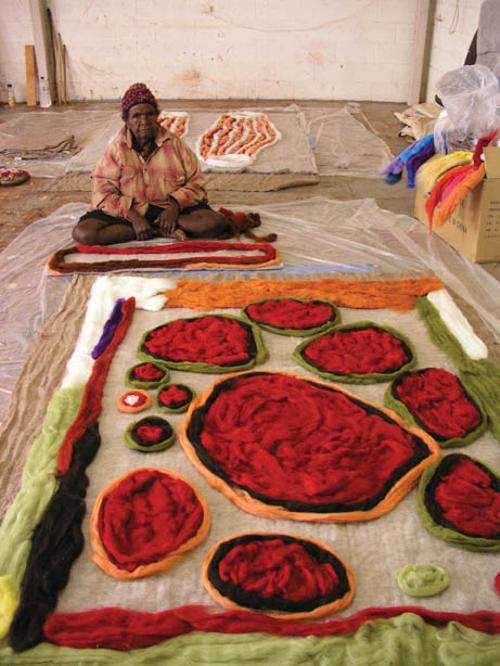
Warburtonta-latju Warntu Palyaranytja (We are doing Warntu work in Warburton)
Warburtonta-latju Warntu Palyaranytja (We are doing Warntu work in Warburton) Holmes à Court Gallery 1 August 14 September 2008

Fremantle Print Award 2008
Fremantle Print Award 2008 Fremantle Arts Centre 23 August - 5 October 2008
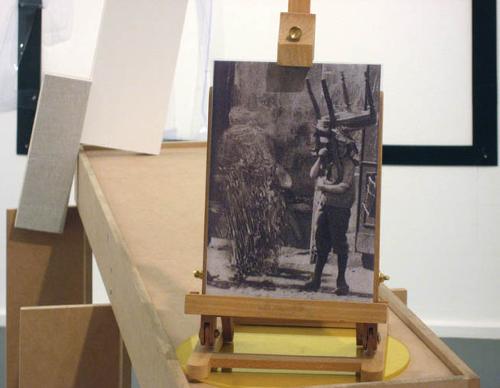
Exit music: a lake and a stand of trees: George Popperwell
exit music: a lake and a stand of trees: George Popperwell Contemporary Art Centre of South Australia (CACSA) 25 July 7 September 2008

Neo Goth: black in black
Neo Goth: Back in Black Curator: Alison Kubler UQ Art Museum, University of Queensland, Brisbane 25 July - 21 September 2008
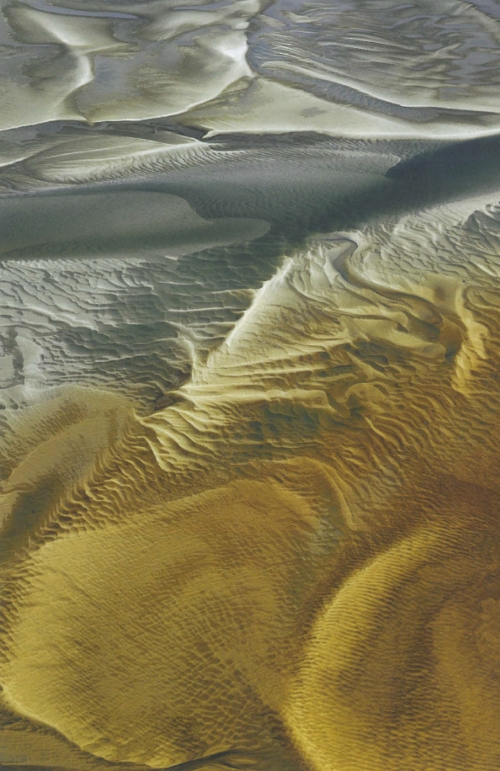
Eldertorial
Dr Pat Hoffie worked with Stephanie Britton to realise this themed issue. They networked across the nation to collect together a set of fascinating interviews and tributes to a dynamic and charismatic group of elders who helped create the identity of Australian art today. They wish to thank all the talented and dedicated interviewers some of whom travelled great distances to do face to face interviews with artists, curators and gallerists.

Rewards, Awards and Living Treasures
Thelma John provides an insight towards the National Trust Living Treasures Program, which recognises outstanding Australians that have contributed to our society with invaluable knowledge and experience within different disciplines such as visual art, acting and sport. John goes on the say that the program was initially for the elderly but has recently included more youthful luminaries. Although in retaliation to this John continues to elaborate on Australia's consistent movement towards a suitable Living Treasures program that includes awards that recognise such achievements within the Australian community.

The Bentinck Painters: Stories to Tell
The Aged Persons' Hostel on Mornington Island is home to 1000 residents. Amongst them are three women from nearby Bentinck Island whose culture is a very separate one to that of Mornington and whose experience of exile sets them quite apart. This article looks at the creative practice of Bentinck elder Sally Gabori, her first solo show and the success of the Woolloongabba Art Gallerys Bentinck Project. According to Robert Mercer, one of the co-directors of the WAG: "&the energy of the Bentinck painters comes from an impulse to tell stories about a life lived. To relate people and places and dreams and hopes in ways that make sense of the passage of time".
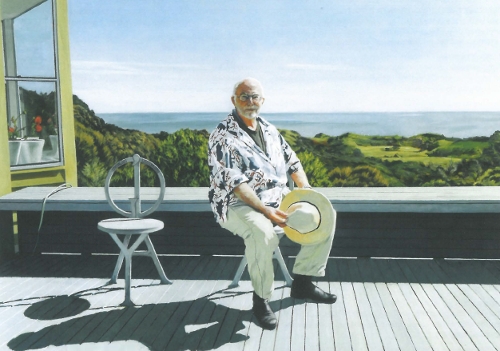
Daniel Thomas: Empathy and Understanding
Steven Miller talked to Daniel Thomas AM, much-loved curator and Emeritus Director of the Art Gallery of South Australia, at his house overlooking the wild north coast of Tasmania about what he has discovered about art and artists during his long career across three major Australian art museums.












